Small-scale reproduction of the Colonna foca in bronze and giallo antico.
Bronze, giallo antico, portor.
Rome.
Late 18th century, early 19th century.
h. 55 cm (21,6 in).
This marble reduction of the Colonna Foca reproduces in miniature one of the lesser-known but most historically significant imperial columns of Rome. Erected in 608 CE in the Roman Forum and originally dedicated to the emperor Phocas, the column itself is a reused Corinthian shaft in Proconnesian marble, standing on a tall stepped base, and crowned — according to early accounts — with a gilded statue of the emperor. The last addition to the Forum’s long architectural history, the colonna Foca marks a final gesture of imperial presence in a space already laden with symbolic meaning. Its exact identification, however, remained uncertain until the rediscovery of its inscription in the early 19th century. Despite the presence of this inscription, the present reduction was most likely created at a moment when the column’s identity was still ambiguous, and may have been interpreted more generally as an ancient Roman honorific monument, hence the crowning with an unidentified bronze Victory instead of the would-be gilt effigy of Phocas.
Carved entirely from giallo antico marble, the column stands on a stepped square base of portor, a black marble veined with golden yellow. The subtle chromatic dialogue between the two stones — the deep yellow of the column and the lighter, gold-tinted striations of the base — testifies to a refined and deliberate choice of materials. The aforementioned finely cast bronze figure of Victory, poised atop the capital, completes the composition and suggests an allegorical reading consistent with the generic iconographic vocabulary of Roman triumph. The carving of the shaft, of the fluting and especially of the acanthus leaves of the Corinthian capital, is particularly precise and skillful.
Objects of this kind belong to a broader class of architectural reductions produced in Rome for Grand Tour travellers in the late eighteenth and early nineteenth centuries. The decision to work in solid blocks of rare antique marble such as giallo antico — rather than use veneered or composite structures — indicates a production aimed at a discerning clientele. Columns, along with miniature obelisks, arches, and temples, formed a core typology within this tradition of neoclassical souvenir-making. Their vertical format and symbolic charge made them ideal for display in domestic libraries, studioli, and collector’s cabinets.
Although the workshops responsible for these models are rarely identified, their materials and techniques point to the marble ateliers of late eighteenth- and early nineteenth-century Rome. The combination of hardstone carving and bronze casting is particularly characteristic of the most ambitious productions. The present object, with its harmonious proportions and careful finish, stands as a testament to the artistic refinement and historical imagination that animated the decorative arts of the Grand Tour.





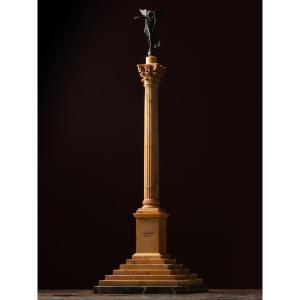





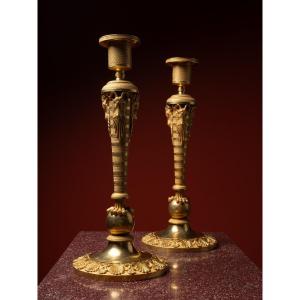
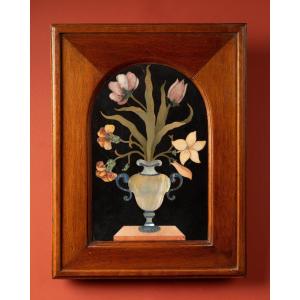
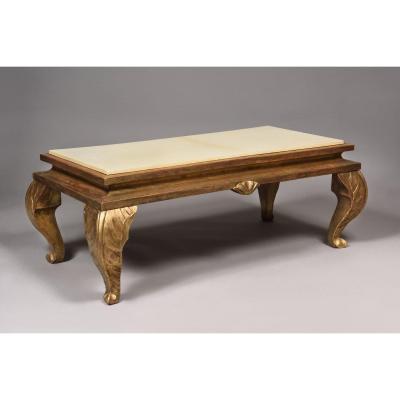
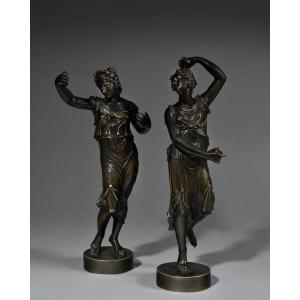
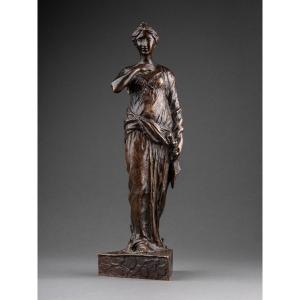


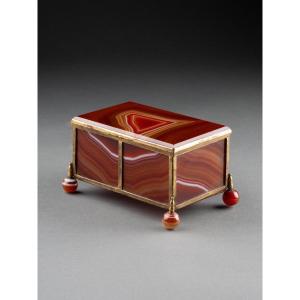
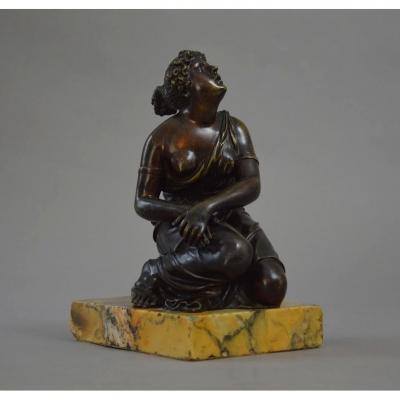
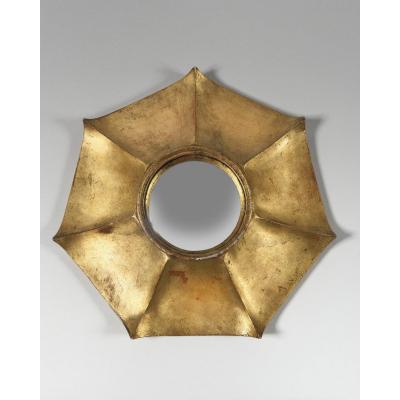
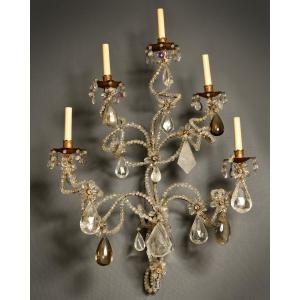
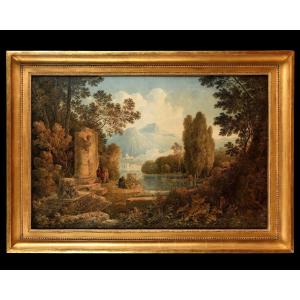


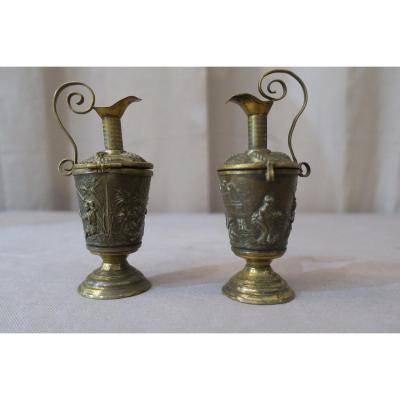






 Le Magazine de PROANTIC
Le Magazine de PROANTIC TRÉSORS Magazine
TRÉSORS Magazine Rivista Artiquariato
Rivista Artiquariato